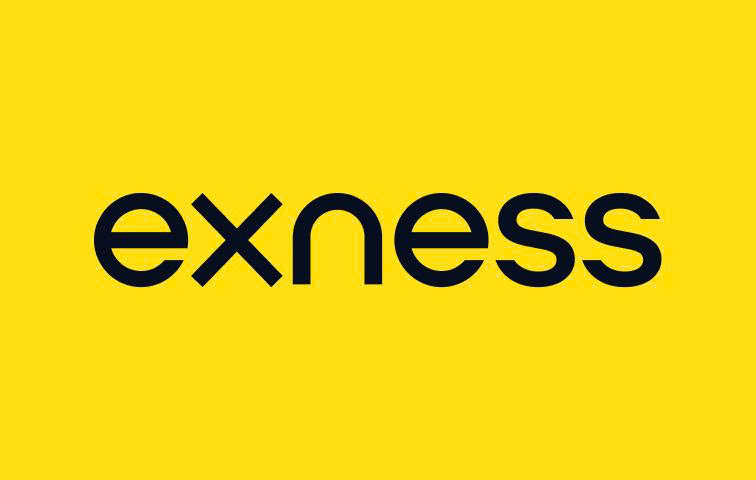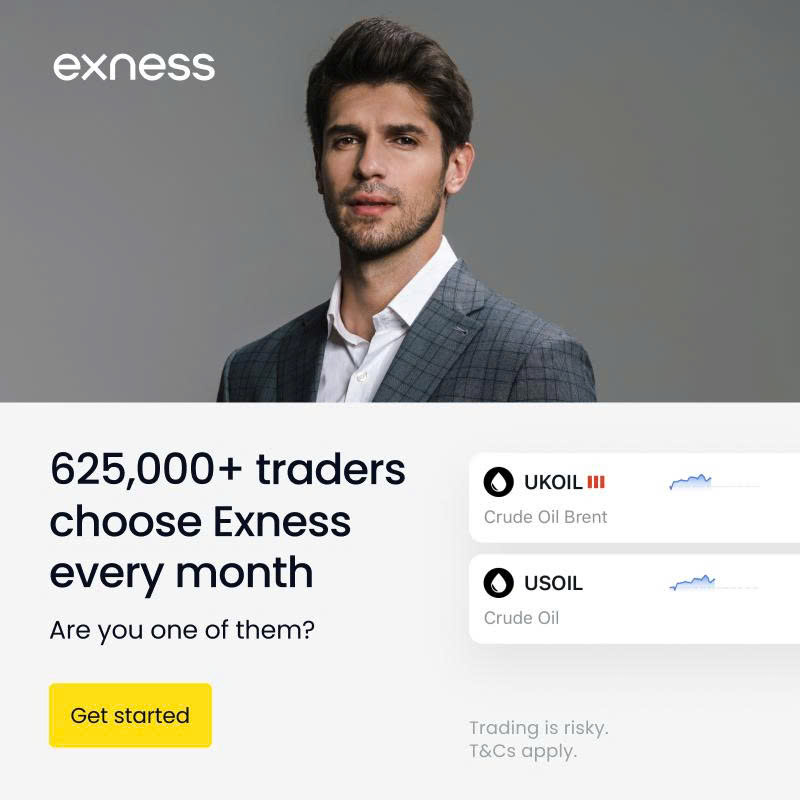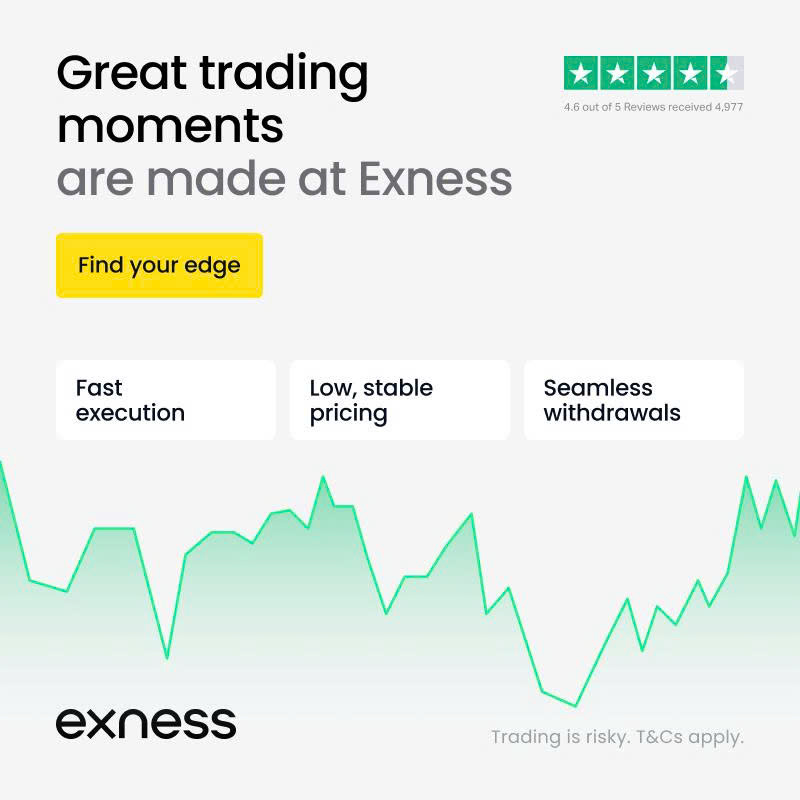
10 minute read
Is Exness Illegal in India? A Comprehensive Guide for Traders
from Exness
by Exness Blog
Forex trading has surged in popularity across India, with platforms like Exness drawing attention for their competitive spreads, advanced tools, and global accessibility. Yet, a pressing question remains for Indian traders: Is Exness illegal in India? The answer is nuanced, shaped by India’s strict regulatory landscape under the Reserve Bank of India (R table:BI) and the Securities and Exchange Board of India (SEBI). This article explores Exness’s legal status in India, the regulatory framework, potential risks, and actionable steps for traders to use the platform responsibly. Designed for clarity this guide aims to empower Indian traders with accurate information for 2025.

💥 Trade with Exness now: Open An Account or Visit Brokers 🏆
What Is Exness? A Global Forex Leader
Founded in 2008, Exness is a globally renowned forex and Contract for Difference (CFD) broker headquartered in Cyprus. Serving millions of clients across over 190 countries, it offers trading in forex pairs, commodities, cryptocurrencies, indices, and more. Indian traders are particularly attracted to Exness for its standout features:
· Competitive Spreads: Tight spreads on currency pairs like USD/INR and EUR/INR, minimizing trading costs.
· Rapid Execution: Ultra-fast trade execution, ideal for volatile forex markets.
· table:High Leverage Options: Flexible leverage for experienced traders, though subject to regulatory limits.
· Advanced Platforms: Support for MetaTrader 4 (MT4), MetaTrader 5 (MT5), and the Exness Trade App, catering to both beginners and professionals.
· Transparency: Real-time data on trading volumes and withdrawal processes builds trust.
Exness holds licenses from top-tier regulators, including the Financial Conduct Authority (FCA) in the UK, the Cyprus Securities and Exchange Commission (CySEC), and the Financial Sector Conduct Authority (FSCA) in South Africa. However, it lacks direct authorization from SEBI or the RBI, which fuels uncertainty about its legality in India. To understand this, we must first examine India’s forex trading regulations.
India’s Forex Trading Regulations: A Complex Framework
India’s forex market operates under a tightly controlled regulatory system to safeguard the economy, prevent illegal capital outflows, and protect traders. The key regulators and laws shaping this environment include:
· Reserve Bank of India (RBI): The RBI governs foreign exchange transactions under the Foreign Exchange Management Act (FEMA), 1999. FEMA imposes strict rules for forex trading:
· Indian residents can only trade currency pairs involving the Indian Rupee, such as USD/INR, EUR/INR, GBP/INR, and JPY/INR.
· Trading must occur through RBI-approved platforms, like the National Stock Exchange (NSE) or Bombay Stock Exchange (BSE).
· Funds must be transferred via RBI-authorized methods, such as bank transfers or Unified Payments Interface (UPI), to ensure transparency.
· Securities and Exchange Board of India (SEBI): SEBI regulates India’s securities and commodities markets, including forex trading on recognized exchanges. It enforces compliance among brokers offering INR-based pairs but has limited oversight over offshore platforms like Exness.
· KYC and AML Compliance: Brokers must implement Know Your Customer (KYC) and Anti-Money Laundering (AML) measures to verify trader identities and prevent illicit activities.
These regulations create a challenging environment for international brokers. While Exness is not explicitly prohibited in India, its lack of SEBI or RBI registration places it in a legal gray zone, requiring traders to navigate compliance carefully.
Is Exness Legal or Illegal in India?
The legality of using Exness in India depends on how traders engage with the platform. Below, we break down the scenarios where Exness can be used legally versus those that may violate Indian law.
When Exness Is Legal
Indian traders can use Exness legally by adhering to FEMA guidelines:
· Trading INR-Based Pairs: Exness offers pairs like USD/INR and EUR/INR, which comply with RBI restrictions. By focusing on these pairs and using RBI-approved payment methods, traders can operate within the law.
· FEMA Compliance: Under FEMA, Indian residents can invest up to $250,000 annually in overseas markets, including forex trading, provided they follow regulations. This includes declaring all profits for taxation.
· Tax Obligations: Forex trading profits are treated as income under Indian tax laws. Exness provides detailed transaction records, making it easier for traders to report earnings accurately.
When Exness May Be Illegal
Using Exness can cross legal boundaries in the following cases:
· Trading Non-INR Pairs: Engaging in pairs like EUR/USD or GBP/USD violates FEMA, as Indian residents are barred from trading non-INR pairs outside authorized Indian exchanges. Penalties for violations can include fines or, in extreme cases, imprisonment.
· Unauthorized Payment Methods: Funding Exness accounts through unregulated channels, such as international e-wallets or cryptocurrencies, contravenes RBI guidelines, as these transactions bypass oversight.
· Tax Evasion: Failing to report forex trading profits can lead to penalties under Indian tax laws, regardless of the platform used.
Exness is not listed on the RBI’s Alert List of unauthorized forex brokers, which includes platforms like OctaFX and Alpari. However, its lack of SEBI or RBI authorization means traders must exercise caution. By limiting activities to INR-based pairs and compliant payment methods, traders can minimize legal risks.

💥 Trade with Exness now: Open An Account or Visit Brokers 🏆
Risks of Trading with Exness in India
Despite Exness’s global reputation, using an offshore broker in India carries inherent risks due to its unregulated status locally:
· No Local Legal Recourse: Without SEBI oversight, Indian traders may struggle to resolve disputes or recover losses. They must rely on Exness’s international regulators, which may not prioritize Indian clients.
· Banking Challenges: Indian banks, under RBI scrutiny, may flag or block transactions with offshore brokers, causing delays or account freezes.
· FEMA Penalties: Trading non-INR pairs or mishandling funds could trigger fines or legal action under FEMA, even if enforcement against retail traders is rare.
· Limited Investor Safeguards: While Exness offers features like negative balance protection and segregated client funds, these do not match the robust investor protections provided by SEBI-regulated brokers.
Despite these risks, Exness remains popular in India for its global market access, low costs, and advanced tools. Traders must weigh these benefits against the need for strict regulatory compliance.
How Indian Traders Can Use Exness Safely
To trade legally and securely with Exness, Indian traders should follow these practical steps:
· Focus on INR-Based Pairs: Trade only USD/INR, EUR/INR, GBP/INR, or JPY/INR to stay compliant with FEMA.
· Use Approved Payment Methods: Deposit and withdraw funds through bank transfers, UPI, or Indian debit/credit cards to align with RBI regulations.
· Report Profits for Taxes: Declare forex trading income accurately, using Exness’s transaction records to simplify tax filing.
· Enhance Account Security: Activate two-factor authentication (2FA) and verify that funds are held in segregated accounts for added protection.
· Stay Informed: Monitor RBI and SEBI updates to ensure ongoing compliance, as regulations may evolve.
Consulting a financial or legal advisor can further help traders navigate FEMA requirements and avoid unintentional violations.
Why Indian Traders Choose Exness
Exness offers several advantages that appeal to Indian traders, provided they operate within legal boundaries:
· INR-Compatible Trading: Support for USD/INR and EUR/INR pairs ensures compliance with Indian regulations.
· Exness Trade App: A mobile-friendly platform with real-time market data, advanced charting, and seamless execution, perfect for traders on the move.
· Educational Support: Webinars, tutorials, and market analysis help traders build skills and strategies.
· Reliable Customer Service: 24/7 support via chat, email, and phone, though some users suggest more localized assistance (e.g., Hindi support) would be beneficial.
· Robust Security: Features like negative balance protection, segregated funds, and encryption safeguard trader assets.
These strengths make Exness a compelling option, but compliance remains critical to avoid legal pitfalls.
Exness vs SEBI-Regulated Brokers: Key Differences
Indian traders may consider SEBI-regulated brokers for greater legal certainty. Here’s how Exness compares to local alternatives:
· Regulation: Exness is regulated by international bodies (FCA, CySEC, FSCA), while SEBI-regulated brokers like Zerodha and Upstox are authorized by the RBI and SEBI, ensuring full compliance.
· Currency Pairs: Exness offers both INR and non-INR pairs, but only INR pairs are legal for Indian traders. SEBI brokers restrict trading to INR-based pairs.
· Costs: Exness typically provides lower spreads and fees compared to SEBI brokers, which may charge higher costs due to regulatory overhead.
· Leverage: Exness offers higher leverage, appealing to experienced traders, while SEBI brokers impose stricter limits.
· Legal Clarity: SEBI brokers eliminate regulatory ambiguity, while Exness requires careful adherence to FEMA.
· Investor Protection: SEBI brokers offer robust safeguards, while Exness’s protections are limited in India due to its offshore status.
SEBI-regulated brokers prioritize compliance but may lack the flexibility and global reach of Exness. Traders must decide based on their risk tolerance and regulatory priorities.
Debunking Myths About Exness in India
Misconceptions about Exness’s status in India contribute to confusion. Let’s address the most common myths:
· Myth: Exness Is Banned in India: Exness is not on the RBI’s Alert List and is not explicitly banned. It can be used legally for INR-based trading with compliant payment methods.
· Myth: Global Regulation Equals Indian Approval: Exness’s FCA and CySEC licenses do not grant it RBI or SEBI authorization. Indian traders must still follow FEMA rules.
· Myth: All Forex Trading Is Illegal: Forex trading is legal in India for INR-based pairs on authorized platforms. Restrictions apply to non-INR pairs and unregulated brokers.
· Myth: No Enforcement Means No Risk: While enforcement against individual traders is uncommon, violating FEMA can lead to penalties, including fines or legal action.
Traders should rely on official RBI and SEBI sources rather than unverified forums or social media posts, which often spread outdated information.
The Future of Exness in India
India’s forex trading landscape is evolving, with the RBI intensifying scrutiny of offshore brokers. In 2023, the RBI expanded its Alert List to 75 unauthorized platforms, signaling stricter enforcement. While Exness has not been targeted, increased regulation could impact its accessibility in India. Traders should stay vigilant for updates to ensure compliance.
Exness could enhance its position in India by:
· Pursuing SEBI or RBI authorization to offer fully compliant services.
· Expanding localized support, such as Hindi-language customer service.
· Promoting INR-based pairs and RBI-approved payment methods to align with regulations.
Until these changes occur, Indian traders must take proactive steps to trade legally.
Alternatives to Exness for Indian Traders
For those wary of Exness’s gray-area status, SEBI-regulated brokers offer a safer alternative:
· Zerodha: Provides forex trading via NSE’s currency derivatives segment, fully compliant with RBI and SEBI.
· Upstox: Offers INR-based pairs with competitive fees and a user-friendly platform.
· ICICI Bank/HDFC Bank: Provide RBI-authorized forex trading services for INR pairs, ideal for conservative traders.
Other offshore brokers like Pepperstone or XM face similar regulatory challenges as Exness, making SEBI-regulated options the most secure choice for risk-averse traders.
Conclusion: Can Indian Traders Use Exness Safely?
Exness is not illegal in India when used correctly. By trading INR-based pairs like USD/INR or EUR/INR, using RBI-approved payment methods, and declaring profits for taxation, Indian traders can leverage Exness’s global platform legally. However, its lack of SEBI or RBI authorization creates a regulatory gray area, and trading non-INR pairs or using unregulated payment methods can lead to legal consequences.
In 2025, Indian traders using Exness should:
· Restrict trading to INR-based pairs.
· Use compliant payment methods like bank transfers or UPI.
· Report profits accurately for tax purposes.
· Monitor RBI and SEBI updates for regulatory changes.
For those seeking maximum legal clarity, SEBI-regulated brokers like Zerodha or Upstox are safer alternatives. Ultimately, trading with Exness demands diligence, compliance, and awareness to ensure a secure and lawful experience.
💥 Note: To enjoy the benefits of the partner code, such as trading fee rebates, you need to register with Exness through this link: Open An Account or Visit Brokers 🏆
Read more:

